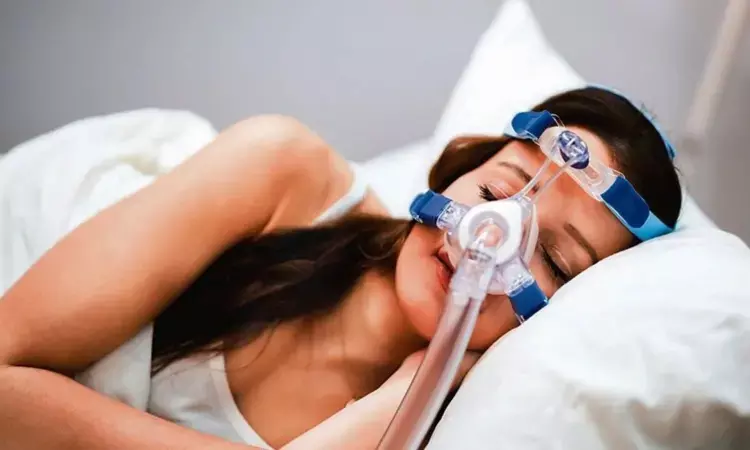- Home
- Medical news & Guidelines
- Anesthesiology
- Cardiology and CTVS
- Critical Care
- Dentistry
- Dermatology
- Diabetes and Endocrinology
- ENT
- Gastroenterology
- Medicine
- Nephrology
- Neurology
- Obstretics-Gynaecology
- Oncology
- Ophthalmology
- Orthopaedics
- Pediatrics-Neonatology
- Psychiatry
- Pulmonology
- Radiology
- Surgery
- Urology
- Laboratory Medicine
- Diet
- Nursing
- Paramedical
- Physiotherapy
- Health news
- Fact Check
- Bone Health Fact Check
- Brain Health Fact Check
- Cancer Related Fact Check
- Child Care Fact Check
- Dental and oral health fact check
- Diabetes and metabolic health fact check
- Diet and Nutrition Fact Check
- Eye and ENT Care Fact Check
- Fitness fact check
- Gut health fact check
- Heart health fact check
- Kidney health fact check
- Medical education fact check
- Men's health fact check
- Respiratory fact check
- Skin and hair care fact check
- Vaccine and Immunization fact check
- Women's health fact check
- AYUSH
- State News
- Andaman and Nicobar Islands
- Andhra Pradesh
- Arunachal Pradesh
- Assam
- Bihar
- Chandigarh
- Chattisgarh
- Dadra and Nagar Haveli
- Daman and Diu
- Delhi
- Goa
- Gujarat
- Haryana
- Himachal Pradesh
- Jammu & Kashmir
- Jharkhand
- Karnataka
- Kerala
- Ladakh
- Lakshadweep
- Madhya Pradesh
- Maharashtra
- Manipur
- Meghalaya
- Mizoram
- Nagaland
- Odisha
- Puducherry
- Punjab
- Rajasthan
- Sikkim
- Tamil Nadu
- Telangana
- Tripura
- Uttar Pradesh
- Uttrakhand
- West Bengal
- Medical Education
- Industry
Insufficient evidence to recommend routine screening for obstructive sleep apnea: USPSTF Statement

The US Preventive Services Task Force (USPSTF) concluded that routine screening for obstructive sleep apnea (OSA) is not recommended in the general adult population due to insufficient evidence on the risks and benefits. The updated recommendations were published in the journal JAMA Network.
Obstructive sleep apnea is a sleep disorder characterized by episodes of narrowing and obstruction of the pharyngeal airway during sleep, leading to reductions or cessations in airflow despite the ventilatory effort. OSA can affect the quality of life and cause severe morbidity and mortality. The present prevalence of obstructive sleep apnea (OSA) in the US is not well determined. Based on cohort and survey data conducted in 2007-2010 the estimated prevalence of at least mild OSA plus symptoms of daytime sleepiness among adults aged 30 to 70 years was 14% for men and 5% for women, and the estimated prevalence of moderate to severe OSA was 13% for men and 6% for women. Mild OSA was defined as an apnea-hypoxia index [AHI] ≥5 and moderate to severe OSA was defined as AHI ≥15. Severe OSA is associated with increased all-cause mortality.
Several screening questionnaires and clinical prediction tools are used to identify persons at higher risk of OSA. OSA is primarily managed by a positive airway pressure device. Untreated OSA is associated with other adverse health outcomes like cardiovascular disease and cerebrovascular events, type 2 diabetes, cognitive impairment, decreased quality of life, and motor vehicle crashes.
Hence considering all these the USPSTF commissioned a systematic review to evaluate the benefits and harms of screening for OSA in adults and update the existing recommendations. The recommendations were applied to asymptomatic adults aged 18 years or older and adults with unrecognized symptoms of OSA who are not aware of their symptoms or do not report symptoms as being a concern to their clinician. Unrecognized symptoms of OSA include snoring, witnessed apnea, excessive daytime sleepiness, impaired cognition, mood changes, or gasping or choking while asleep.
Evidence:
- The USPSTF found no studies that directly evaluated the effect of screening for OSA on health outcomes.
- The USPSTF found no studies that directly evaluated the harms associated with screening for OSA.
- Many of the studies were conducted in populations that had a high prevalence of OSA and hence the high risk of spectrum bias was noticed.
Hence USPSTF concludes that the current evidence is insufficient to assess the balance of benefits and harms of screening for OSA in the general adult population.
Further reading: US Preventive Services Task Force. Screening for Obstructive Sleep Apnea in Adults: US Preventive Services Task Force Recommendation Statement. JAMA. 2022;328(19):1945–1950. doi:10.1001/jama.2022.20304
BDS, MDS
Dr.Niharika Harsha B (BDS,MDS) completed her BDS from Govt Dental College, Hyderabad and MDS from Dr.NTR University of health sciences(Now Kaloji Rao University). She has 4 years of private dental practice and worked for 2 years as Consultant Oral Radiologist at a Dental Imaging Centre in Hyderabad. She worked as Research Assistant and scientific writer in the development of Oral Anti cancer screening device with her seniors. She has a deep intriguing wish in writing highly engaging, captivating and informative medical content for a wider audience. She can be contacted at editorial@medicaldialogues.in.
Dr Kamal Kant Kohli-MBBS, DTCD- a chest specialist with more than 30 years of practice and a flair for writing clinical articles, Dr Kamal Kant Kohli joined Medical Dialogues as a Chief Editor of Medical News. Besides writing articles, as an editor, he proofreads and verifies all the medical content published on Medical Dialogues including those coming from journals, studies,medical conferences,guidelines etc. Email: drkohli@medicaldialogues.in. Contact no. 011-43720751




